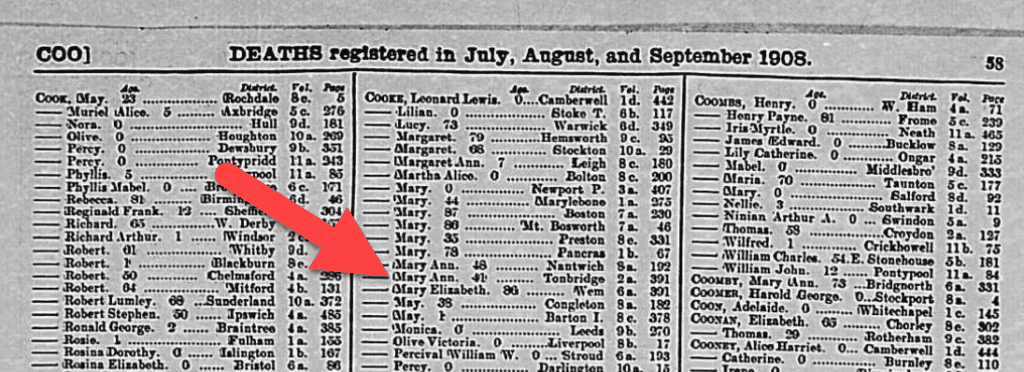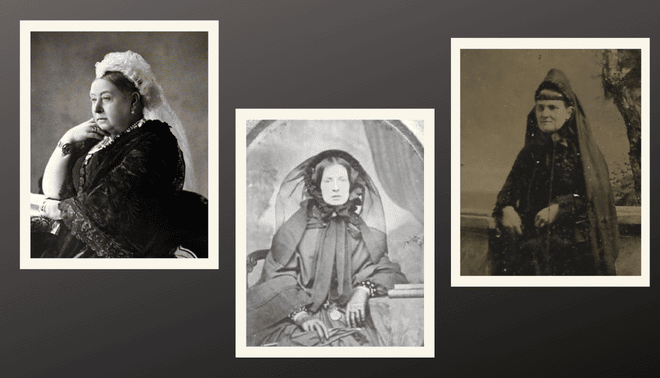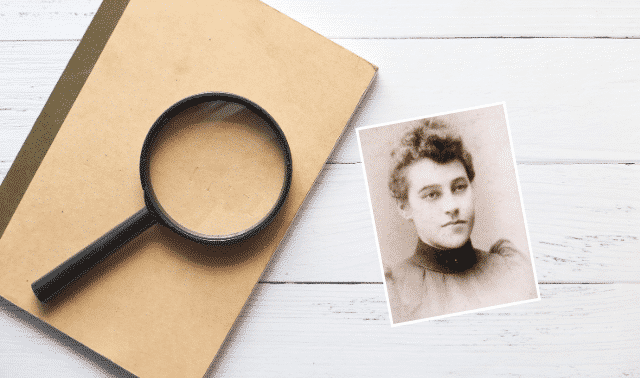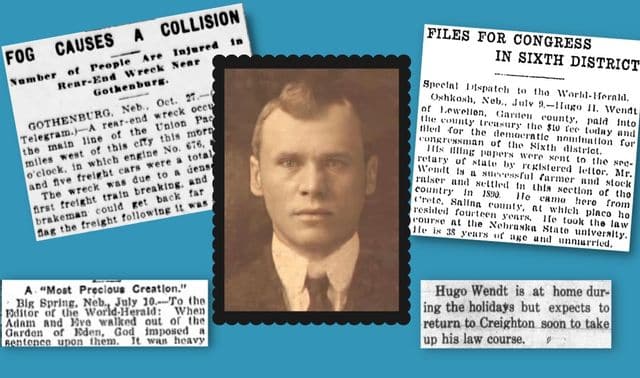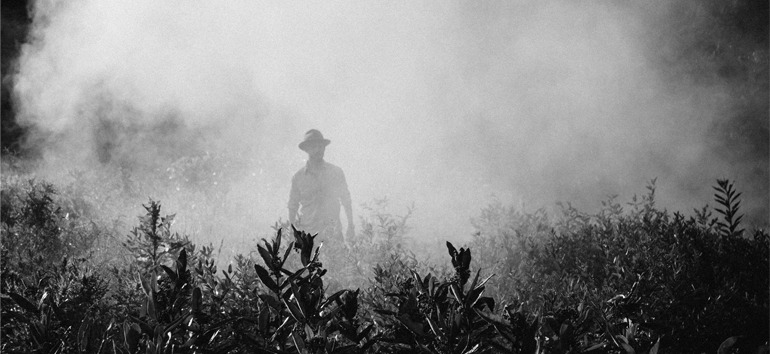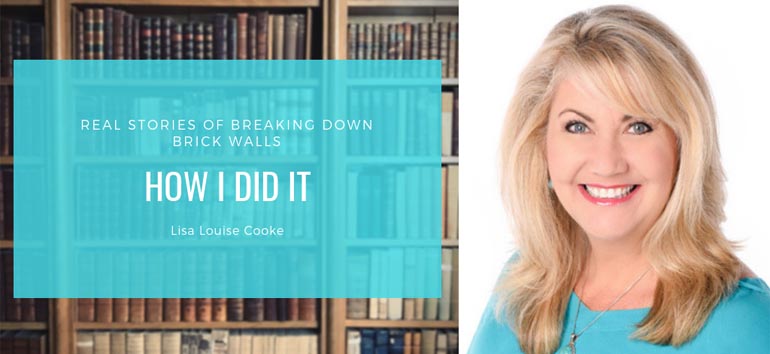
The Mystery of a Victorian Ancestor
My husband’s great-grandmother has always been a bit of a mystery. We knew that Mary Ann Susannah Cooke was a talented musician who played the violin at English garden parties and balls in Victorian England. She was the mother of one son and wife of carriage builder Harry Cooke. We also knew that she supplemented the family’s income by renting their spare room to actors who performed at the Tunbridge Wells Opera House around the corner. However, we had no photographs of her. What’s more, in my initial research, she appears to vanish just after the turn of the century.
Finding a Clue in an Old Photo
The first time I laid eyes on Mary Ann Susannah Cooke was when a cousin delivered a 50-year-old box to my doorstep. The box included a photograph of Mary Ann held inside, along with the family bible. On the back, her son Raymond, who at the time well into his nineties, had written what he remembered of his mother.

“Mother passed away about 1915. Her birthday was September 3. Buried in cemetery at Tonbride Wells.”
This burial site made perfect sense. Tunbridge Wells, Kent, England was Raymond’s birthplace and home until his immigration to Canada in 1912 with his father.
In order to verify the information Raymond provided, I turned to FamilySearch.org. There, in the Birth, Marriage, and Death Index (BMD), I discovered that Mary Ann died much earlier, in 1908. Armed with the transcription (which is also available at FreeBMD.org.uk), I headed to Findmypast.com. My goal was to obtain a copy of the image for verification.
More Questions to Answer
Mary Ann’s death at the relatively young age of 41 left me with additional questions. What was her cause of death? Where did she die?
The Tunbridge Wells Cemetery burial records shed more light by revealing she died at home at 49 Kirkdale Rd. This was not unusual for the time.
The record did not provide a cause of death, but it did provide another clue. Mary Ann was buried in unconsecrated ground. This could have been because she was a non-conformist, but there may also have been other reasons.
The Death Certificate
I used the information from the BMD entry to order a copy of the death certificate from the National Archives (UK) website. These days, obtaining certificates is easier than ever. The National Archives now offers an emailed PDF service. Within 5 business days I received an answer.
“Committed suicide by drowning she being at the time in an unsound state of mind.”
It was a tragic end to a woman who was an accomplished violinist who played in the local opera house and was dearly loved by her son.
Turning back to the burial record, I capitalized on another clue it contained: her home address. Knowing that the address might bring up a reporting of the death even if family names were not mentioned, I searched the British Newspaper Archive. Almost immediately a startling discovery appeared on my screen. It was a lengthy article found in The Kent & Sussex Courier dated August 21, 1908, entitled Tunbridge Wells Woman’s Sad Death.
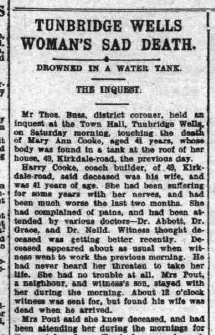
As was not uncommon at the time, the coroner’s inquest was published in detail in the local newspaper. After a long depression, Mary Ann took her own life by drowning herself in the family home cistern. Tragically, it was her 14-year-old son Raymond who discovered her body. The lengthy article offers a detailed account of her last day, the people involved in the search after her disappearance, and the final ruling by the coroner.
The Next Stage of the Journey
That address search of the British Newspaper Archive delivered one final connection between this sad ending and the new beginning that Raymond and his father Harry embarked on just four years later.
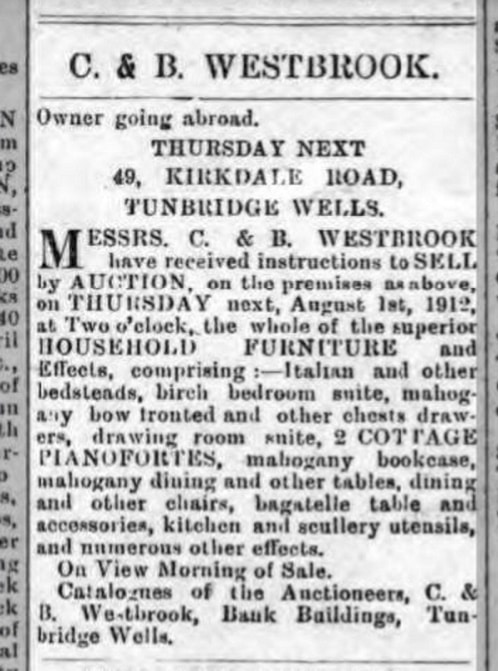
The advertisement declares “Owner going abroad.” It then proceeds to list the furnishings and contents up for sale at 49 Kirkdale Road. Harry, who had recently remarried, had made the decision to start a new life in Regina, Canada. And now my genealogical journey follows theirs across the sea.

